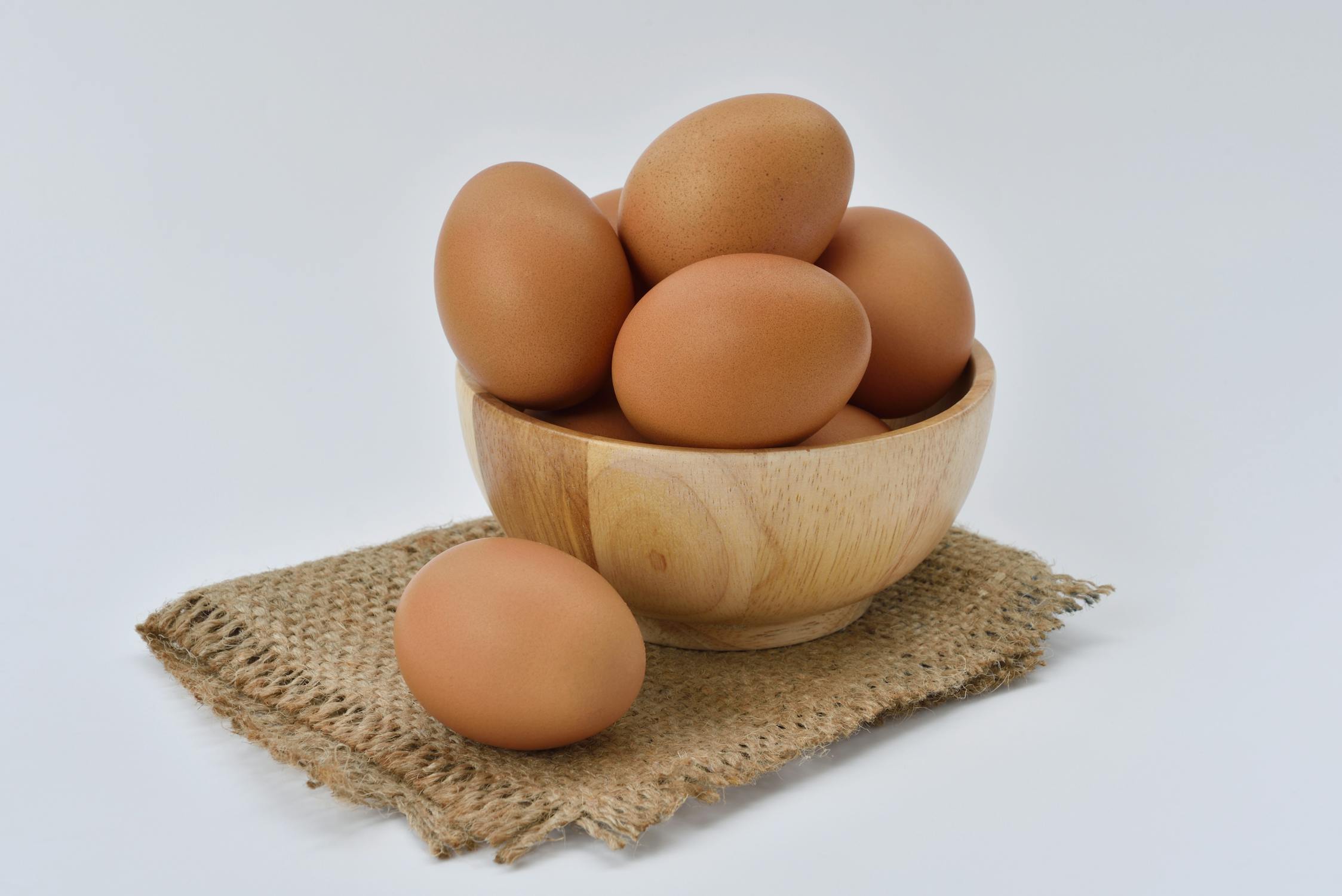More and more research is being carried out into how diet can help maintain and even improve brain function in later years.
There is already a mountain of evidence linking diet to physical health, but now researchers are investigating the links between what we eat and our mental health, especially as we grow older. Anecdotal evidence suggests that a so-called ‘Mediterranean diet’, rich in unrefined grains, fruit, veg and oily fish, could slow or even reverse the symptoms of dementia, including Alzheimer’s disease.
Proponents of the theory are evangelistic about its benefits, but more research is needed to establish scientifically-proven links between diet and mental prowess. In the meantime, since a healthy diet is clearly beneficial in other ways, what have we got to lose by eating well? Fish has long been regarded as ‘brain food’, but what other types of food could boost our brainpower? Here are 10 foods which could help us stay sharp as a new pin:
 Eggs: Vitamins B6 and B12 found in eggs, together with folic acid, are known to reduce a compound in the blood called ‘homocysteine’, which carries an increased risk of stroke and cognitive impairment if present at elevated levels. These ‘B-group’ vitamins are thought to reduce brain shrinkage in elderly patients. Other foods rich in them include chicken, fish and leafy greens.
Eggs: Vitamins B6 and B12 found in eggs, together with folic acid, are known to reduce a compound in the blood called ‘homocysteine’, which carries an increased risk of stroke and cognitive impairment if present at elevated levels. These ‘B-group’ vitamins are thought to reduce brain shrinkage in elderly patients. Other foods rich in them include chicken, fish and leafy greens.
Blueberries: Berries in general, and blueberries in particular, could help boost short-term memory. Most dark red and purple fruits and veg contain compounds called ‘anthocyanins’, which are thought to help delay or even reverse short-term memory loss. Several studies are under way to determine just how blueberries work on the brain.
Oily fish: Much has been written about the benefits of ‘Omega-3’ fats, which occur naturally in oily fish. The human body cannot manufacture essential fatty acids (EFAs) but must obtain them from foods because they are, as the name suggests, ‘essential’ to good health. They not only aid brain function, but also benefit the heart, joints and general wellbeing. Oily fish, such as mackerel, herring, sardines, kippers, trout and salmon, contain the active ingredient of these fats in a ready-made form, making them an excellent source. Links have also been made between increased consumption of EFAs and lowered levels of stress and anxiety. Some beans, seeds and nuts also contain EFAs, but the body absorbs them more quickly from oily fish.
Wholegrains: Like little bundles of energy just waiting to burst forth, wholegrains could help improve concentration and focus. Our brains need energy to work well and get it in the form of glucose from our blood. Wholegrains release glucose slowly and continuously into the bloodstream, helping us stay mentally sharp throughout the day. Opt for ‘brown’ wholegrain cereals such as brown rice, wholewheat pasta and granary bread.
Broccoli: This tasty veg is rich in vitamin K, which is known to enhance cognitive function. The compounds found in broccoli protect the pathways which carry messages in the brain and are known to break down in conditions such as Alzheimer’s.
Nuts: Vitamin E has also been cited as helping prevent age-related cognitive decline, and nuts are a great natural source of vitamin E. A daily portion of mixed nuts could significantly increase your intake of vitamin E, which is also found in eggs, seeds, brown rice, wholegrains, asparagus and olives.
Blackcurrants: A well-known cordial drink has long espoused the health benefits of blackcurrants as a great source of Vitamin C. Research suggests that vitamin C deficiency is a significant risk factor in age-related mental degeneration, including dementia and Alzheimer’s. Just like blueberries, blackcurrants may also help in stabilising mood and managing anxiety and stress.
Tomatoes: The much-praised ‘Mediterranean diet’ is certainly rich in tomatoes, which contain a powerful antioxidant called ‘lycopene’. It could help prevent damage to brain cells which occurs in the development of dementia. Cooked tomatoes release this antioxidant more easily and absorption is helped by a little olive oil – another key ingredient of the Mediterranean diet.
Pumpkin seeds: Many seeds contain zinc, which is thought to boost both memory and thinking skills, but pumpkin seeds are particularly rich in this valuable mineral. They are also high in B vitamins and magnesium, which help produce ‘serotonin’, the human body’s ‘good mood chemical’.
Sage: Why would a herb be given a name which also means ‘wise’? Perhaps because regular consumption of that herb could maintain or even boost your brain power? Sage has a long-held reputation for improving concentration and memory and can be included in your diet in its fresh form or as a dried ingredient in a wide variety of recipes.
